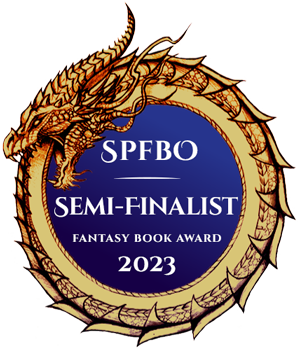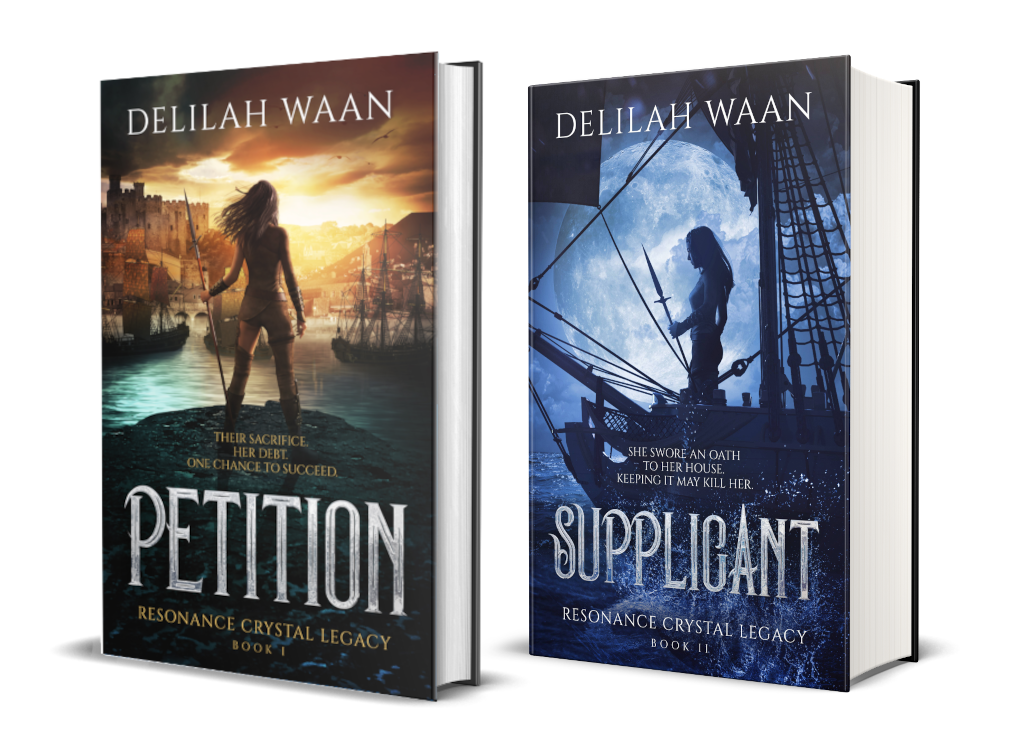When I started out writing Petition, I chose to write it in third person limited perspective. There were many reasons for that decision:
- Most modern genre fiction is written in third person limited past tense. Especially epic fantasy, when there’s lots of POVs. That’s not to say you can’t have multi-first person POVs (Naomi Novik’s multi-first person POV in Spinning Silver worked incredibly well) or a blend of first and third POVs (J.T. Greathouse does this in Pact and Pattern where The Hand of the Sun King is all first person POV and then The Garden of Empire sticks with first person for Wen Alder’s chapters and uses third person for the other POVs). But third person limited for all POVs used tends to be the default; I suspect because it’s easier to write and easier to read. And while Petition only had two POVs, I wanted the option to have more POVs in later books in the series.
- First person is really, really hard to do well. When done well, it’s brilliant. (Examples that I’ve loved: Novik’s single POV first person in The Scholomance; K.J. Parker, however, might have written my favorite first person novel in Sixteen Ways to Defend a Walled City.) But when done poorly, it becomes really off-putting to read—I have DNF’d many a book for badly written first person POV.
- There is no need for the story to be told in first person. Usually first person lends itself well to framing narratives—another technique that is brilliant when done well and irritating when done poorly—and I didn’t see this story needing one.
- Second person is even more divisive. I’ve actually written a lot of second person prose (it’s the default when you’re writing case studies and immersive simulations) but it’s even harder to pull off in prose fiction than first person. Examples that I’ve loved: Harrow the Ninth by Tamsyn Muir, Ann Leckie’s The Raven Tower, and Simon Jimenez’s The Spear Cuts Through Water. But all of those work because there are very specific plot and character reasons for choosing second person—and I didn’t have any of those reasons here.
- Third person omniscient could have been fun. A lot of my favorite series actually flow between third person limited (a.k.a. a ‘close’ third) and third person omniscient. It’s really interesting to read The Empire Trilogy and Green Bone Saga closely to see how Feist/Wurst and Lee negotiate these shifts! I also love it when the omniscient narrator has a distinct voice as well—all of the Narnia books by C.S. Lewis do this, and the omniscient narrator often adopts first person too. But again, that adds extra layers and extra layers mean additional complexity and I did not want to bite off more than I could handle.
After deciding to write in a close third, the next choice was tense: past or present?
In my experience, past tense is more common but present tense lends a feeling of immediacy to the reading experience you don’t quite get with past tense. That said, I do tend to find that when I’m reading in present tense, I have to go through a bit of an adjustment period for the first couple of pages but once I’m into the story, I hardly notice the tense.
In the end, I cheated and used both.
For the most part, Petition (and its sequels) are written in third person limited past tense, with one big exception: any time the POV character is using or witnessing one of the time-based resonance skills, the Evocation, Seeking, or Augury is written in present tense.
This was a deliberate choice because I was after a very specific effect.
The core premise behind the magic is that emotions have resonances that echo through time. When you’re reaching back in the past with Evocation, or trying to glimpse the future with Augury, or trying to get a sense of how someone else is feeling in the present with Seeking, you’re actively experiencing those emotions in the moment of the working, regardless of when those emotions originate in time. The abrupt switch to the immediacy of present tense from past tense is the most effective technique to convey how this feels.
The other benefit is that the tense switch, in combination with indented, italicized text, is a very clear indication to the reader that ~Something Magical~ is happening. This is pretty useful as well because I often have POV shifts in Evocations, Seekings, and Auguries too!
…at least, that was my intent. So far, readers seem to be able to follow along without a problem, though it’ll be interesting to see what happens when they get to Supplicant, the sequel!




